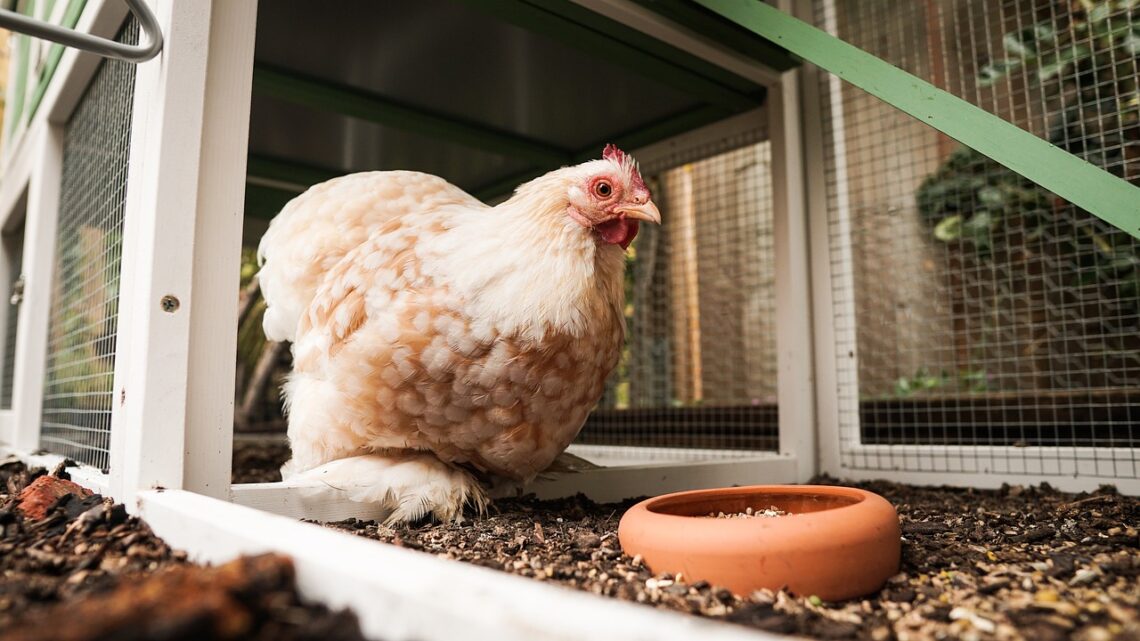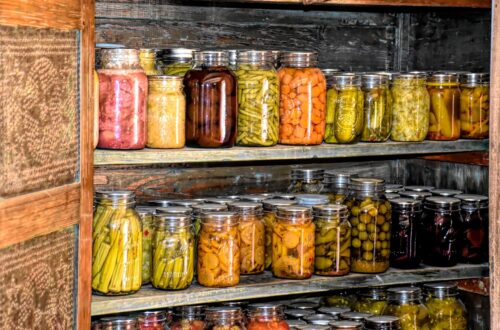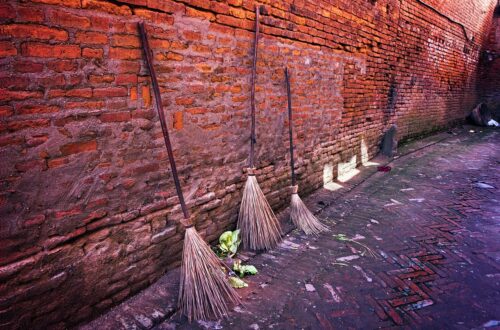How to start homesteading when you can’t buy a homestead just yet!
Before I started homesteading, I lived in the city, surrounded by pavement and brick walls and city ordinances that prevented backyard chickens and native plantings. It was frustrating to say the least. But that didn’t stop me from dreaming about the food garden I would grow and what chicken breeds I would keep in my coop someday!
If this sounds like you, the tips in the guide will help you get ready to homestead while you’re still saving up for your dream property. You’ll find that there’s a lot of planning and skills that you can master while still living in the city or an apartment. And by developing those skills now, you’ll be even more prepared for your homestead when the big day arrives!
Affiliate disclosure: As an Amazon Associate, I may earn commissions from qualifying purchases.

1. Read!
Well look at you, you overachiever, already reading about homesteading! Reading books and blogs about homesteading (shameless blog plug) is honestly one of the best ways to prepare for your future homestead. In fact, I spent a year or two reading about homesteading and gardening before I even picked up a shovel and dusted off my work boots.
What books you should read will depend on where your homesteading interests lie. You can read about chicken keeping, milking goats, growing veggies, preserving foods, fixing clothes… you name it. And while you’re at it, look for some homesteading podcasts and how-to videos too!
I have a full guide on my favorite gardening books and I’d definitely recommend giving that list a read through. But beyond gardening, I also really enjoyed (and learned a lot from) these homesteading books:
Cooking:
- Flour Water Salt Yeast: The Fundamentals of Artisan Bread and Pizza
- Fermented Vegetables: Creative Recipes for Fermenting
Making:
- Creative Mending: Beautiful Darning, Patching and Stitching Techniques
- Candlemaking: A Step by Step Guide
Homesteading:
- Organized Simplicity: The Clutter-Free Approach to Intentional Living
- The Complete Guide to Working with Worms
- Composting Inside & Out
- Chick Days: An Absolute Beginner’s Guide to Raising Chickens
2. Start planning.
Just because you can’t move into your homestead now doesn’t mean you can’t start planning. That may mean browsing on real estate websites to get a feel for the area where you’d like to live or the size of homestead you’d like to invest in. Or it may look like clipping out images from a magazine and sticking them on your own little homesteading vision board.
I remember making a few Pinterest boards back in the day for crafts I wanted to try and plants I wanted to grow. You could also investigate heritage livestock breeds, heirloom plant varieties or homemade recipes you’d like to master. And don’t forget to save all your research and Pins so you can refer to them later!
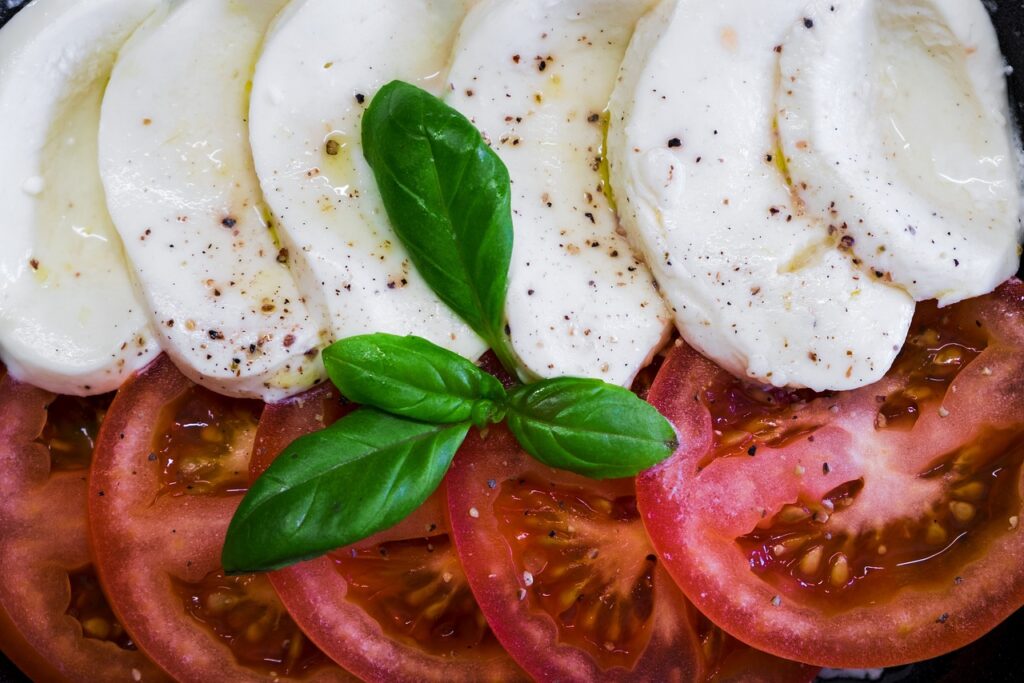
3. Take some classes.
Book learnin’ is grand, but it can’t replace hands-on learning! That’s why I always recommend getting your hands dirty and getting real life practice with homesteading skills by taking a local class.
What classes will be available to you will vary depending on where you live, but I was able to find a few beekeeping and cheesemaking classes back in my city dwelling days. Since then, I’ve taken classes on foraging, plant identification, birdwatching, perennial division and how to start a survival fire… to name a few. Cooking classes, chicken keeping classes, food certification classes, market gardening classes and similar courses may also be handy!
You can often find upcoming classes on social media event pages or at your local Adult Education center. But if you can’t find any classes nearby, you can also find tons of homesteading classes online!
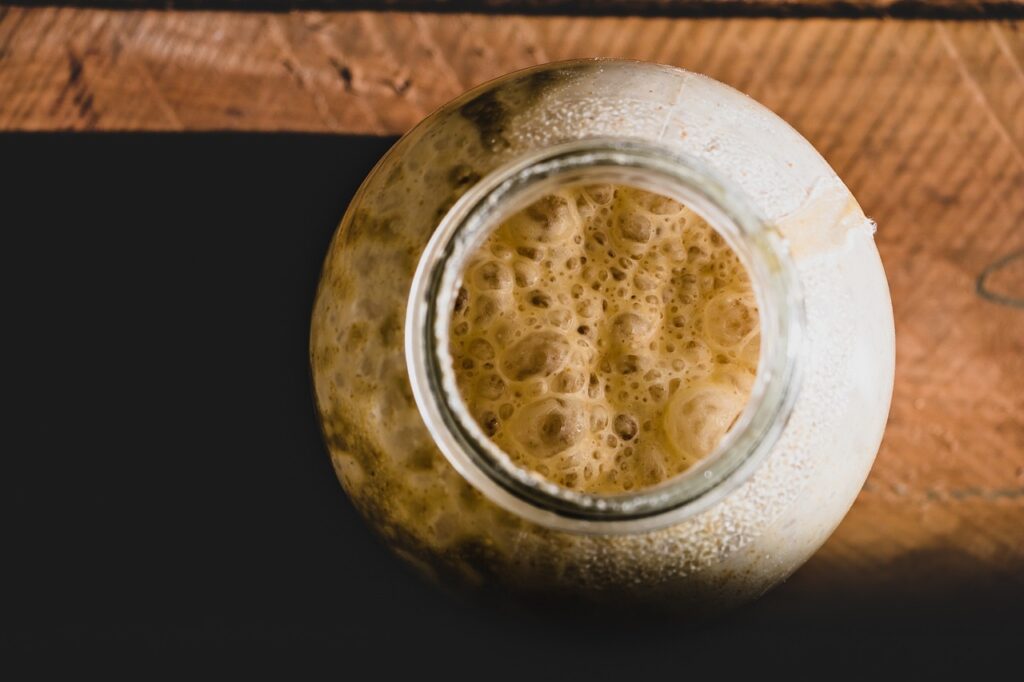
4. Make a few classic recipes.
Many homesteaders (myself included) do a lot of from-scratch cooking. And one of the great things about this homesteading skill is that it’s easy to do in a small apartment kitchen!
Mastering slow cooking and home cooking techniques now while you don’t have many urgent homesteading tasks will let you take your time and get comfy with traditional skills. To get you started, here are a few traditional homesteading recipe ideas you might want to look into:
- Making sourdough from scratch
- Fermenting a batch of homemade sauerkraut
- Creating quick and easy fridge pickles
- Crafting a batch of slow cooker apple butter

5. Try out food preservation.
Preserving foods can take up a bit of space in a small kitchen, but it is still do-able in apartment settings. If you buy more fresh veggies than you can use straight away, you can practice blanching and freezing them or try out water bath canning if you’re feeling more adventurous.
If you have too many fresh herbs, many herbs can be dried with hang-drying, or in a microwave or oven on the lowest setting. Once you’ve mastered the basics of preserving, you can always expand your preserving style and invest in quality equipment like a food dehydrator or pressure canner. Food preservation is a handy skill to have under your belt no matter where you live and it can make you feel much more food secure and limit food waste!
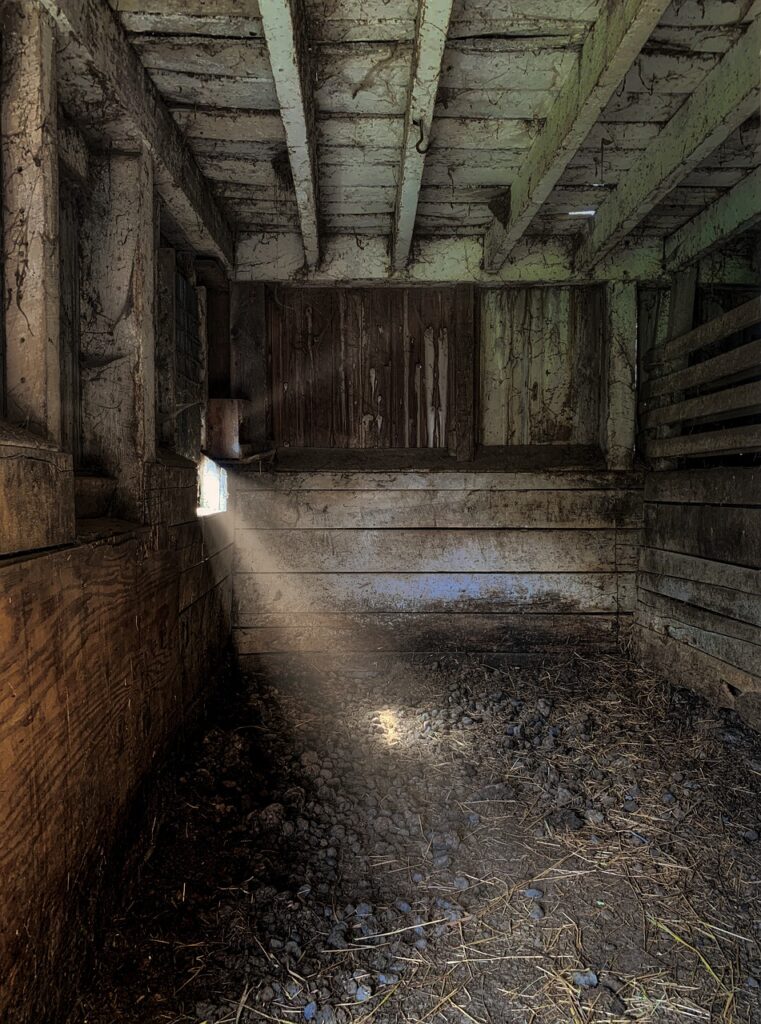
6. Volunteer on a farm.
You can learn a lot about homesteading from local classes and reading, but you can also gain experience by volunteering on a small farm or in a community garden. Before you commit to keeping livestock, try mucking out a stall or two or help a neighbor clean up their chicken coop. Homesteading has a lot of perks, but it’s also sometimes really hard and dirty work!
Mastering urban gardening skills at a local community garden can teach you a lot about gardening as a whole and many of those skills will also translate into small farm living. You can learn about planting, pruning, pest control, harvesting and preserving from the people who do it every day and then take those skills to your homestead when the time is right!
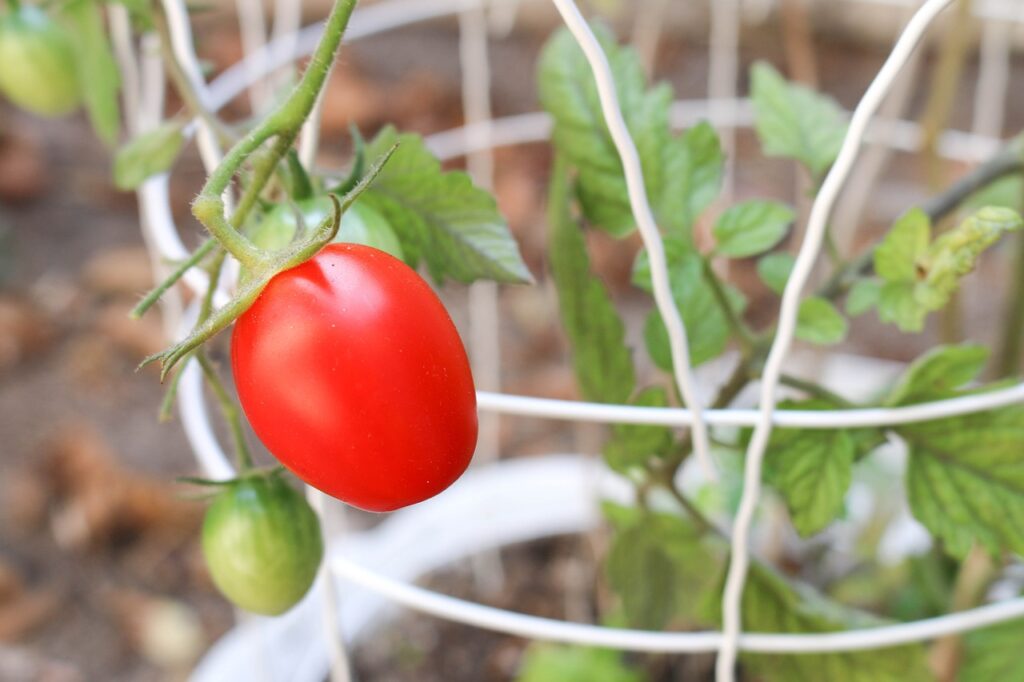
7. Grow a container garden.
If you’ve never been able to keep a plant alive before, now is the time to spruce up your green thumb by growing something… anything!
I often recommend beginning with super easy care houseplants, like pothos or cacti, for people who have no gardening skills. These forgiving plants can teach you a lot about watering, fertilizing and light levels, as well as the subtle cues plants give when they’re happy or stressed. (If you often overwater your plants, go for the pothos… it tolerates more water than a cactus!)
Once you’ve figured out the basics of houseplant care, try keeping a windowsill herb garden with beginner-friendly herbs like basil or dill. Then graduate to keeping a few potted veggie plants on a patio or balcony – like determinate-type tomatoes, lettuce, kale, peppers, potatoes, beans and peas. Remember, practicing with these plants now will put you way ahead of the game when you finally get that big homestead garden!
Tip: Determinate tomatoes are smaller plants than indeterminate tomatoes and much better for small space gardens.
Tip 2: Potatoes grow beautifully in 10 to 15-gallon grow bags.
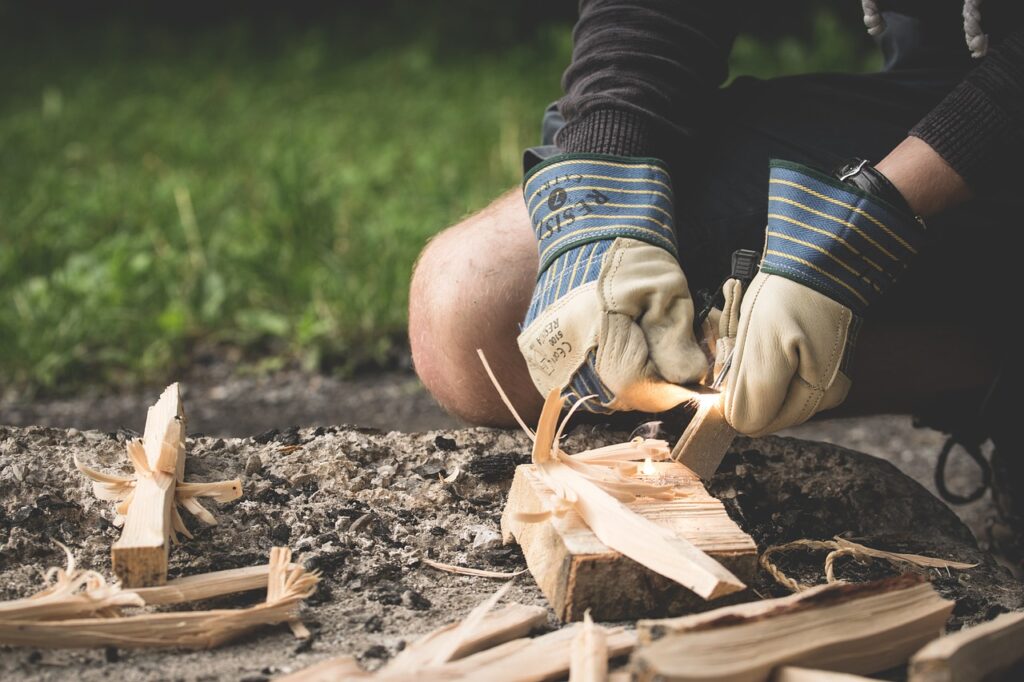
8. Master a new skill.
So we’ve talked about taking a class, volunteering and reading… but there are other skills that are handy for homesteads that you can teach yourself in your spare time. You can learn how to mend your own clothes, clean up a cast iron pot, start a fire without matches or tie a sturdy knot in an afternoon. Many easy tutorials of this sort are available on YouTube!

9. Start composting.
You might not be able to keep an outdoor compost pile if you live in the city, but you can still make plenty of compost with an indoor bokashi composter or vermicomposting system. Composting will teach you a lot about soil improvement, but it’s also a great way to reduce food waste and get FREE soil amendments for your container gardens and houseplants.
Compost can be mixed into potting mixes, used as a top dressing, applied as a weed-suppressing mulch or brewed in water to make compost tea. Not to mention, many indoor composting systems are small enough to fit under your kitchen sink!
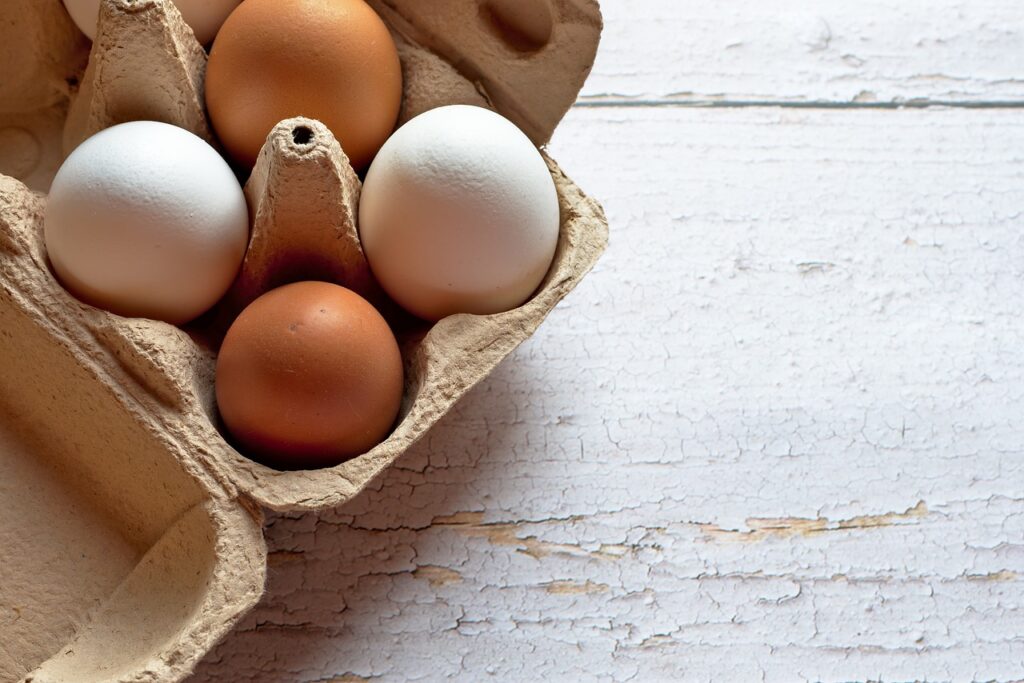
10. Join a community.
I learned a TON about homesteading from social media groups, but you can also find local community groups that focus on slow cooking, gardening, prepping and other traditional skills. Not only will these groups help you learn practical skills, but you’ll also be building your homesteading network and making friends. Who knows… maybe someday you’ll be able to swap your surplus of homegrown zucchini for some chicken eggs raised by your new homesteading friends!
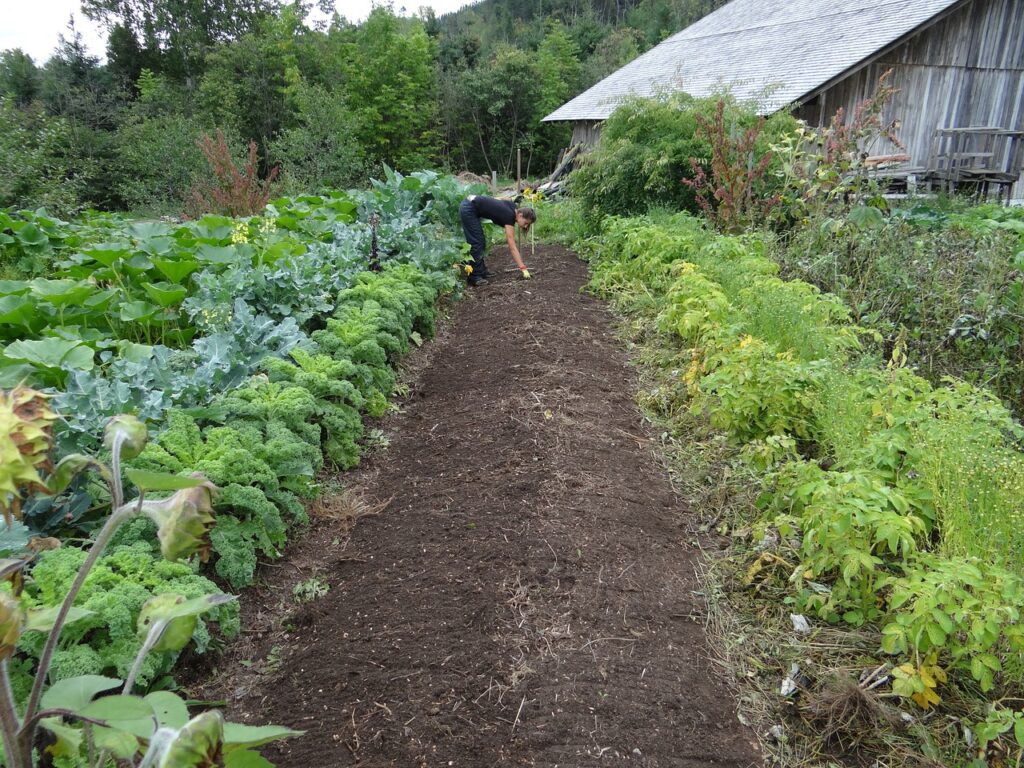
Frequently Asked Questions about Beginning Homesteading
What I wish I knew before starting a homestead?
I thought I needed to know everything about homesteading before I started, but that isn’t true. Homesteading, like most things in life, is a learning process and you’ll learn a lot as you go. However, starting out with a few basic skills, like how to grow tomatoes or how to mend clothes, will make your homesteading experience easier!
Is 1 acre enough for a homestead?
Absolutely! You can grow a surprising amount of food on a 1-acre lot and you may even be able to keep a few hens, depending on your local ordinances. Using space saving techniques, like square foot gardening or vertical growing, will help you fit even more food crops into a small space!
What is modern homesteading?
Homesteading is all about self-sufficient living and learning how to do as many things for yourself as possible. That means growing your own food, food preserving, reducing waste, mending, DIY and perhaps even a bit of prepping. Some modern homesteaders even homestead in the city!
